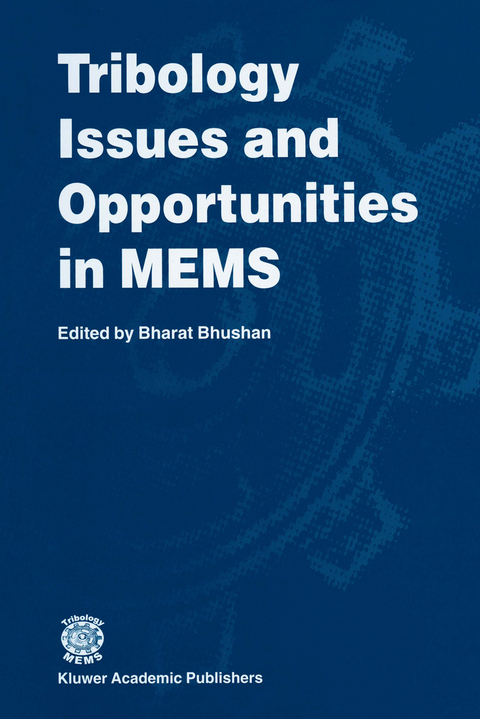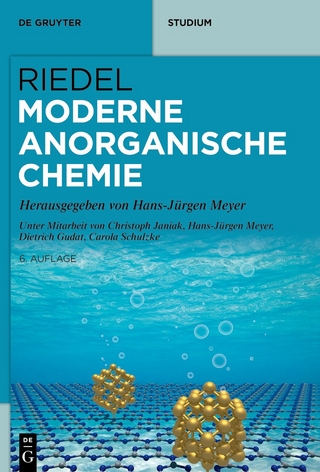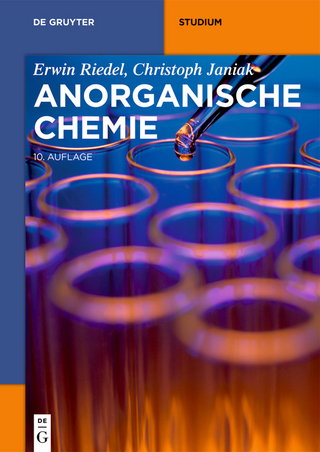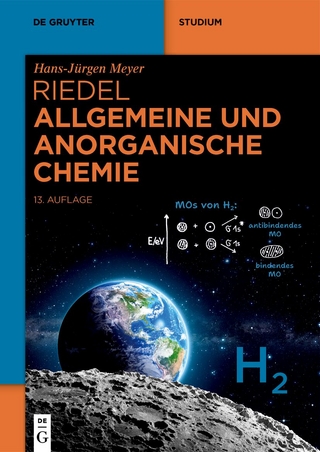
Tribology Issues and Opportunities in MEMS
Springer (Verlag)
978-94-010-6121-6 (ISBN)
Micro Electro Mechanical Systems (MEMS) is already about a billion dollars a year industry and is growing rapidly. So far major emphasis has been placed on the fabrication processes for various devices. There are serious issues related to tribology, mechanics, surfacechemistry and materials science in the operationand manufacturingof many MEMS devices and these issues are preventing an even faster commercialization. Very little is understood about tribology and mechanical properties on micro- to nanoscales of the materials used in the construction of MEMS devices. The MEMS community needs to be exposed to the state-of-the-artoftribology and vice versa. Fundamental understanding of friction/stiction, wear and the role of surface contamination and environmental debris in micro devices is required. There are significantadhesion, friction and wear issues in manufacturing and actual use, facing the MEMS industry. Very little is understood about the tribology of bulk silicon and polysilicon films used in the construction ofthese microdevices. These issues are based on surface phenomenaand cannotbe scaled down linearly and these become increasingly important with the small size of the devices. Continuum theory breaks down in the analyses, e. g. in fluid flow of micro-scale devices. Mechanical properties ofpolysilicon and other films are not well characterized. Roughness optimization can help in tribological improvements. Monolayers of lubricants and other materials need to be developed for ultra-low friction and near zero wear. Hard coatings and ion implantation techniques hold promise.
MEMS R&D in Europe.- Integrated MEMS in Conventional CMOS.- Facilitating Choices of Machining Tools and Materials for ‘Miniaturization Science’: A Review.- Microfabrication Technologies for High Performance Microactuators.- Surface Characterization of Non-Lithographic Micromachining.- Biosensors and Microfluidic Systems.- Power MEMS Materials and Structures.- MEMS Opportunities in Accelerometers and Gyros and the Microtribology Problems Limiting Commercialization.- New Technology and Applications at Lucas NovaSensor.- Rough Surface Characterization.- Frictional Instabilities.- Wear of Ceramics and Metals.- Mechanics of Wear: From Conventional Components to MEMS.- Rheological Modeling of Thin Film Lubrication.- Surface Roughness Induced Effects in Hydrodynamic Lubrication.- Transition from Elastohydrodynamic to Partial Lubrication.- Micro/Nanotribology: State of the Art and Its Applications.- Pulsed Force Mode: A New Method for Characterizing Thin Silane Films by Adhesive Force Measurements.- Formation of Nanometer-Scale Contacts to Viscoelastic Materials: Implications for MEMS.- Nanotribology of Vapor-Phase Lubricants.- The Tribology of Hydrocarbon Surfaces Investigated Using Molecular Dynamics.- Dual-Axis Piezoresistive AFM Cantilever for Independent Detection of Vertical and Lateral Forces.- Statistical Thermodynamic Treatment of the AFM Tip in Liquid.- Tribological Issues of Polysilicon Surface-Micromachining.- Advantages and Limitations of Silicon as a Bearing Material for MEMS Applications.- Surface Force Induced Failures in Microelectromechanical Systems.- Development, Fabrication and Testing of a Multi-Stage Micro Gear System.- Analysis of Gear Tooth Performance of Mechanically-Coupled, Outer-Rotor Polysilicon Micromotors.- Micro/Nanotribological Studies ofSingle-Crystal Silicon and Polysilicon and SiC Films for Use in MEMS Devices.- Phase Transformations in Semiconductors under Contact Loading.- Influence of Water Adsorption on Microtribology of Micromachines.- Tribological Effects of Surface Roughness in MEMS Devices.- Active Friction Control Using Ultrasonic Vibration.- Contact Resistance Measurements and Modeling of an Electrostatically Actuated Microswitch.- Metrology for MEMS Tribology.- Mechanical Property Determination Using Nanoindentation Techniques.- Stress in Thin Films for MEMS Actuators.- Reliability and Fatigue Testing of MEMS.- Surface Modification and Mechanical Properties of Bulk Silicon.- Microfriction and Microwear Experiments on Metal Containing Amorphous Hydrocarbon Hard Coatings Using an Atomic Force Microscope: Mechanisms, Models and Micro- versus Macrotests.- Formation of Carbon Films on Ceramic Carbides by High Temperature Chlorination.- Deposition and Characterization of Diamond-Like Materials.- Wear and Nanomechanical Studies of Silicon Oxide and Silicon Nitride Thin Films for MEMS Applications.- a-SiC Thin Films Deposited Using Pulsed Laser Ablation of Graphite and Magnetron Sputtering of Silicon onto Steel Substrates at Room Temperature.- Lubrication of Polysilicon Micromechanisms with Alkylsiloxane Self-Assembled Monolayers: Coefficient of Static Friction Measurements.- Tribological Properties of Modified MEMS Surfaces.- Breakout Session Report: Tribology Research in MEMS.- Breakout Session Report: Mechanisms of Nano-Scale Tribology and Instrumentation for MEMS Devices.- Breakout Session Report: Lubricants, Overcoats and Surface Modification Techniques.- Breakout Session Report: Mechanical Property Measurements.- Panel Discussion Report: Tribology Issues and Opportunities in MEMS.- List ofParticipants.- Editor’s Vita.
| Zusatzinfo | XIV, 655 p. |
|---|---|
| Verlagsort | Dordrecht |
| Sprache | englisch |
| Maße | 160 x 240 mm |
| Themenwelt | Naturwissenschaften ► Chemie ► Anorganische Chemie |
| Naturwissenschaften ► Physik / Astronomie ► Mechanik | |
| Technik ► Elektrotechnik / Energietechnik | |
| Technik ► Maschinenbau | |
| ISBN-10 | 94-010-6121-1 / 9401061211 |
| ISBN-13 | 978-94-010-6121-6 / 9789401061216 |
| Zustand | Neuware |
| Haben Sie eine Frage zum Produkt? |
aus dem Bereich


